Trailblazing trans icon Candis Cayne on her legendary career and Caitlyn Jenner's run for office
Today, viewers can binge “Pose,” “Supergirl,” “Euphoria” or even “Star Trek: Discovery,” but when Candis Cayne sashayed onto the screen on ABC’s nighttime drama “Dirty Sexy Money” in 2007, she became the first openly transgender actor with a recurring role on a network television series.
On the show, she played the vixenous Carmelita Rainer, who was having an affair with handsome New York state attorney general Patrick Darling (Billy Baldwin), who was itching to get out from under the thumb of his billionaire father (Donald Sutherland).
“Dirty Sexy Money” only lasted one season but it broke ground in a number of ways: Cayne was a transgender woman playing a transgender character. And Carmelita wasn’t the butt of the joke — she was beautiful, and as deliciously devious as her co-stars.
At the time, though, Cayne confesses it didn’t feel as huge as it should have.
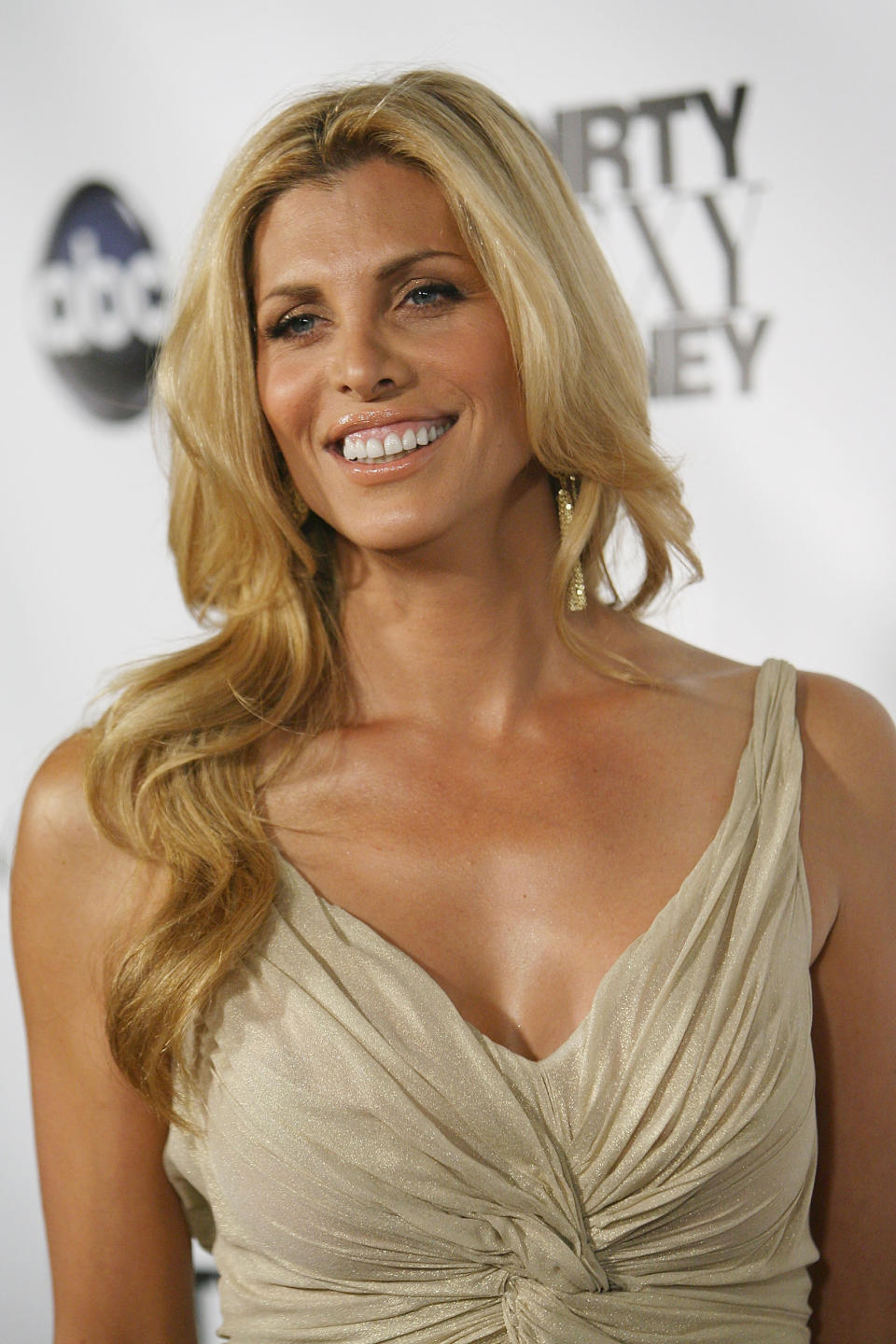
“I was so just in the Hollywood rat race then, going to auditions, trying to make it,” she tells TODAY, in honor of our 2021 Pride Month series. “You’re always hustling and can’t even stop to enjoy your successes.”
It wasn’t until months later, at the GLAAD Media Awards, that the importance of the breakthrough moment sank in. “They showed a scene with me and Donald Sutherland. And the whole audience got up and applauded,” Cayne recalled. “That was the first time I realized, ‘Yeah, this is a lot more than me just getting a gig. This is moving our community forward.’ So it was impactful, finally, in that moment.”
“At a time when Hollywood largely excluded trans talent, Candis stepped into a groundbreaking network TV role and educated the industry and audiences everywhere about who trans women are,” GLAAD President and CEO Sarah Kate Ellis told TODAY via email. “She’s always recognized and embraced the power of her own visibility and story as she entertains audiences with her performances and her acting talents.”
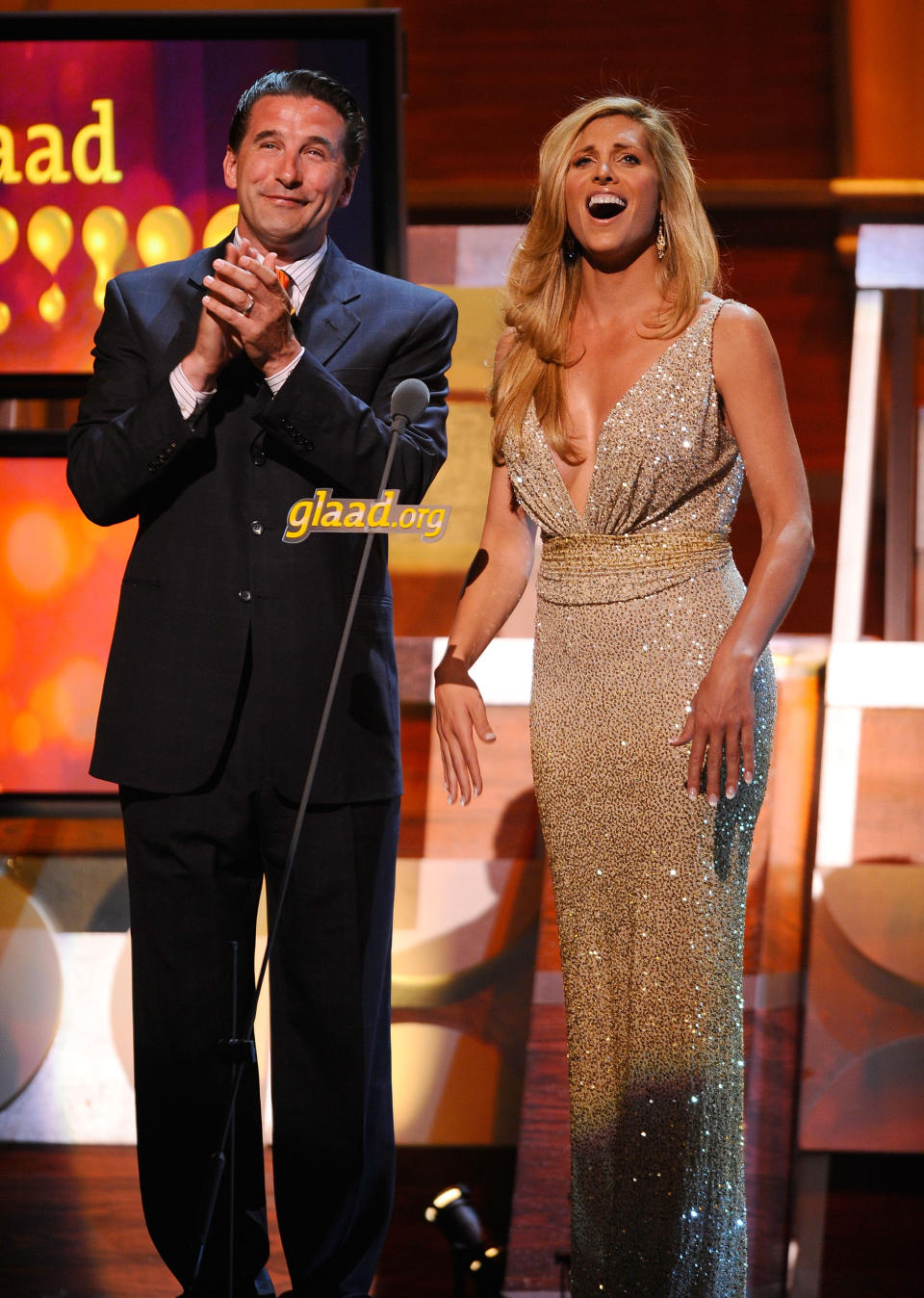
With Twitter and Instagram in their infancy, Cayne says she was spared hatred from transphobic Internet trolls. “The hardest time I had was, like, inappropriate questions from interviewers,” she said.
That, and the fact that Carmelita’s voice was digitally lowered for in her debut episode.
“I was sitting with all my friends and we’re all watching, and my first line comes on, and they had lowered my voice,” she remembered. “And everyone just looked at me, gagged. The whole rest of the show it was normal but, I guess, this is how they wanted to have that moment, that reveal. And yeah, it was irritating. But I do have to say the producers and the network were so good to me and treated me with such kindness and respect otherwise that I let it go, you know? But at the time it was more shocking than anything else.”
Even more than a decade later, some of the dubbing on foreign airings of “I am Cait” is done by cisgender men, Cayne said.
“There’s still more educating to do,” she adds.
From Chelsea queen to Hollywood starlet
Cayne grew up in Hawaii, the child of two teachers at a Waldorf School, and says she’s still close with her parents and her twin brother, Dylan. “It was kind of, like, a magic bubble,” she said. “We lived on campus and so I had the playground and my bedroom overlooked these beautiful views.”
But, even in a tropical paradise, being a young queer person was isolating.
“It was difficult. You're singled out from the first moment,” Cayne said. “You know, you're in the middle of the Pacific so there's not a lot to do except go to the beach and hang out. All my friends on the mainland would be going to concerts and clubs, and living their best lives, and I was just… there.”
After graduation she moved to Los Angeles to study dance but only stayed for a year-and-a-half. “I was just too swishy for them,” she recalled. “This was a different era — you couldn't really be yourself. You had to pretend to be someone else, someone they thought America wanted.”
After too many fruitless auditions and too much time waiting tables, Cayne booked a gig on a cruise ship. “That was the only dancing place that would hire me,” she says, laughing. “But I saved up enough money to move to New York and that’s where I found my tribe. It was like, at the time, that's exactly where I needed to be.”
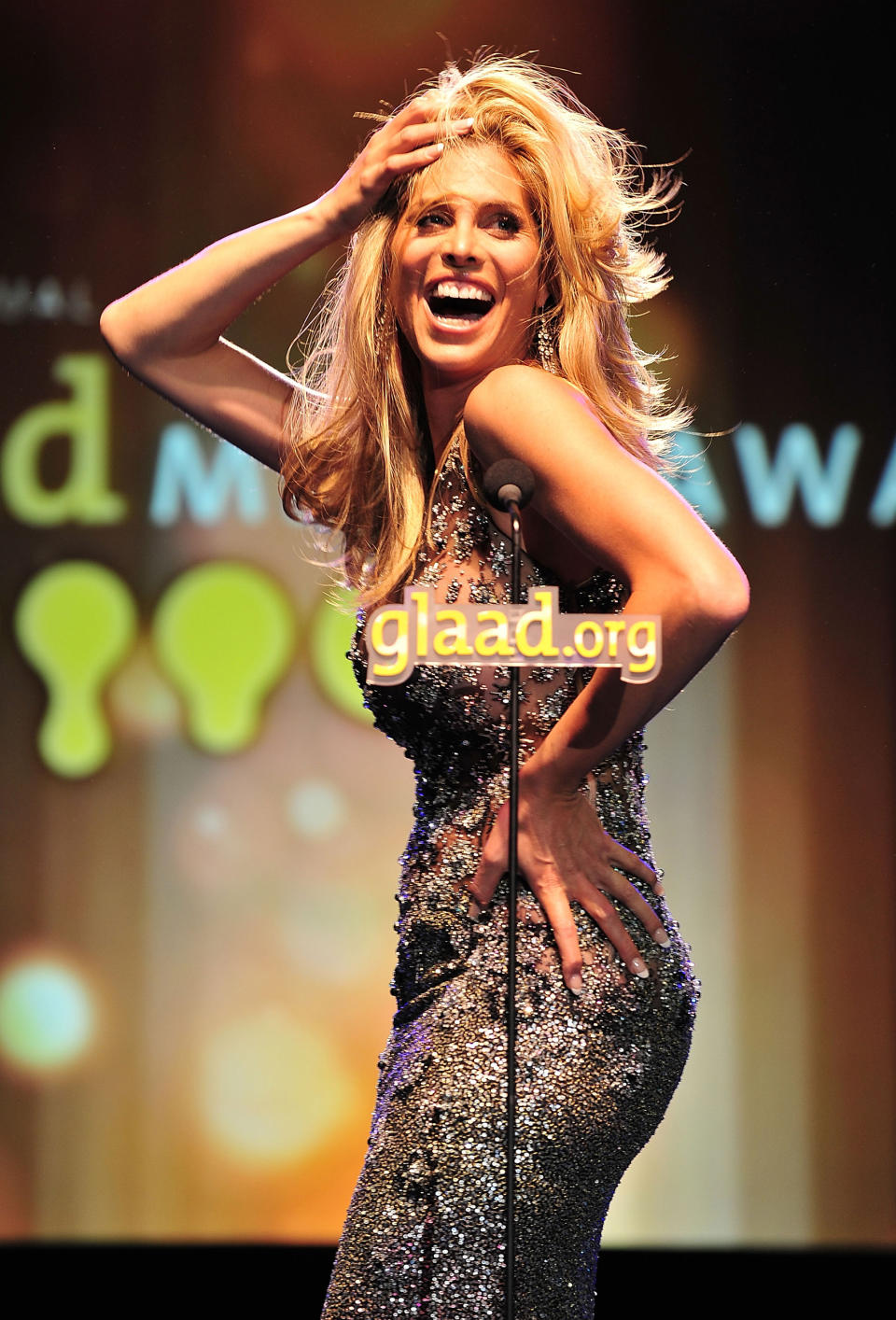
It was in New York that Cayne came to terms with her gender identity and began to transition. In actuality, It was an issue she had struggled with for most of her life. She said, "My first thoughts were like at age 7 but — and I'm dating myself here — we didn’t have the Internet or social media to check, ‘Why am I feeling this way?’”
“I didn't even know that (transitioning) was possible until I moved to New York and I saw other girls who had transitioned,” she said. “And I thought, 'Oh, that's who I am.' And that's how I discovered my true self.”
Cayne credits her parents’ openness for helping her on her path. “They never told me not to do things, or said, ‘You can’t wear that or be friends with those people.' I just was always allowed to live my authentic life, which I think is a really healthy way of discovering your trans-ness.”
Related: In honor of Pride Month, the drag queen doyenne looks back on her career with TODAY.
In the 1990s, Cayne was a rising star in the New York drag scene, performing by the side of other rising queens Lady Bunny and RuPaul. But even now, audiences aren’t always educated about the difference between being transgender and being a drag queen. “It’s getting better, but yeah, sometimes you still have to tell people ‘drag is something you do, trans is something you are,” she said.
“When I was in the bars, there weren't a ton of trans performers. But when I competed in the (drag pageant) Miss Continental, I saw like all these girls that I was competing against and they were all trans. And I realized how interconnected these communities are.”
She says she still considered herself a drag performer. “I’m not a drag queen, but I’m not pretending this is how a normal woman behaves in her daily life.”
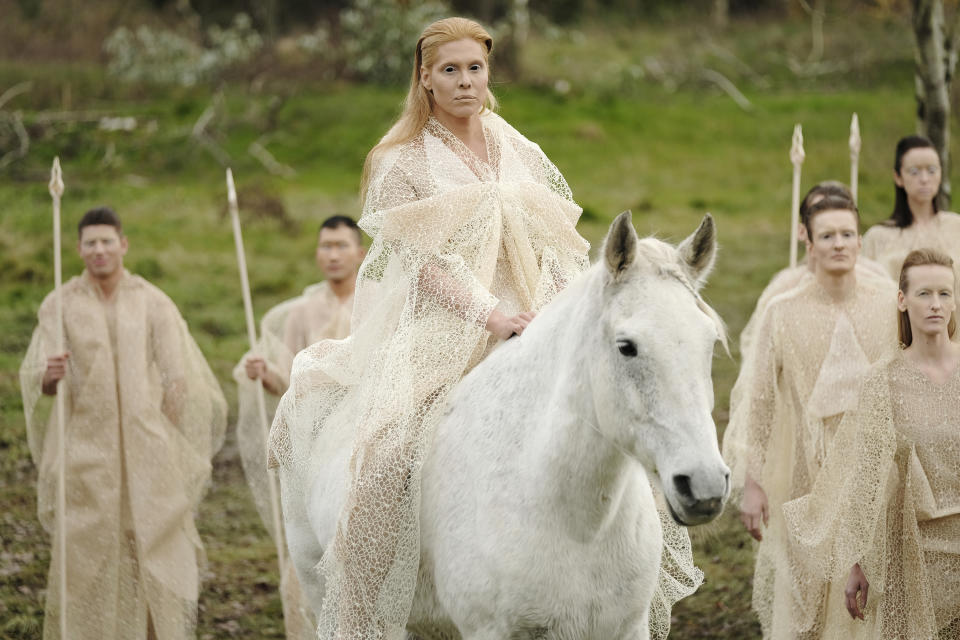
Besides her brief foray into reality TV with Caitlyn Jenner, Cayne has landed several more juicy TV parts— including a fairy queen on "The Magicians" and Sherlock Holmes’ housekeeper, Mrs Hudson, on CBS’ "Elementary" — neither of which were explicitly transgender.
On her relationship with Jenner, Cayne says, “We’ll occasionally catch up. I haven't in a little while, you know, that’s due to our, um, differing political backgrounds. So I just try not to engage.”
“I said, if you want to run, that’s great, but I'm not voting for you,” she added, referring to Jenner's gubernatorial run in California. “I actually told her that. Hey, it’s a free country. But yeah, for the past four years with the last administration we spent so much time trying to defend who we are as human beings. I have no time in my life for anyone who doesn't fight for my community. So I'll just leave it at that.”
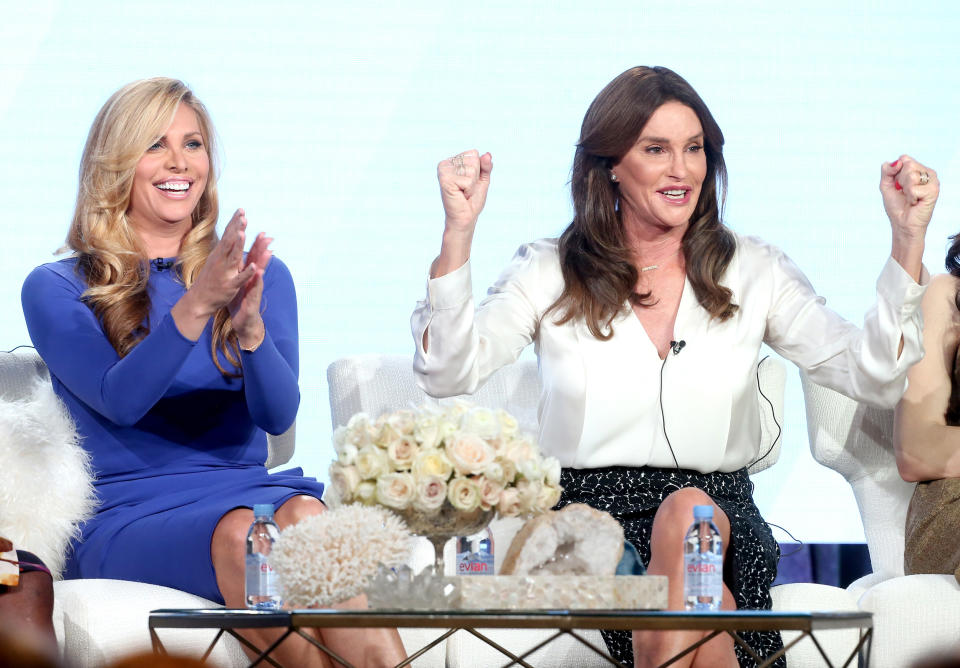
'We have a long way to go'
In her work, Cayne says it’s been nice to play different characters, she’d be fine with only playing trans women. “Personally, I honor the fact that I get to represent my community. I’m not dying to only play cisgender women. If the writing is good and the storyline is good, I don’t care. We should have an option, but most times for actors who are trans, we’re not given the chance to audition for roles that aren't of the trans experience. So any kind of opportunity we can take to show who we are as performers is appreciated.”
In 2020, Cayne appeared in the documentary "Disclosure: Trans Lives on Screen." The film, which premiered at Sundance and aired on Netflix, brought trans entertainers into American homes, many for the first time.
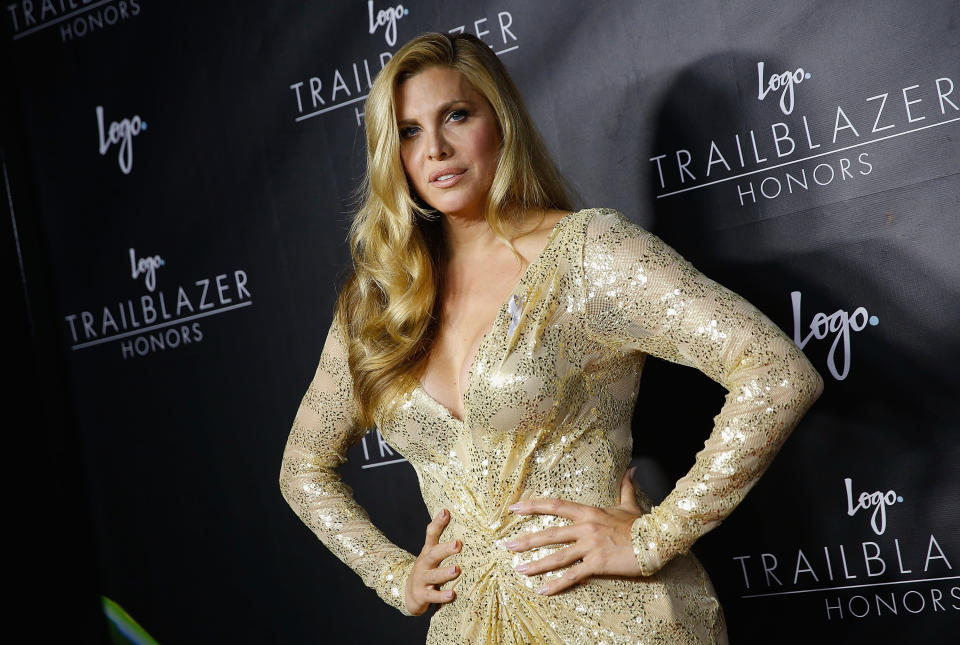
Cayne says the biggest feedback she got about the documentary was from so-called progressive Hollywood insiders. “Suddenly, they’re like ‘Oh, I didn't realize I shouldn't do that or say that or put that in my movie.’ And they’re realizing the importance of writing more parts with that movie in mind. We now have a kind of a blueprint of how to write for trans performers.”
In the past half-decade there’s been a bevy of high-profile trans personalities, from Jenner and Laverne Cox to “Juno” star Elliot Page and star of “Together Together” Patti Harrison. But, Cayne says, that doesn’t mean the struggle for visibility and authentic representation is over.
“Saying transphobia in Hollywood is over is like saying racism in politics is over because we had Obama in the White House," she said.
"We have a long way to go. I think it’s unbelievably fabulous that we’re finally having trans actors get the recognition they deserve. But the next big step is actually to have trans producers and directors, writers and creators. ‘Pose’ was amazing but it was created by a gay man. Not to say that, I don't appreciate that and everything that Steven (Canals) did, and he did open doors for (‘Pose’ trans producers) Janet Mock and Our Lady J. But I'm just saying I think we need to have trans operators in the room.”
This LGBTQ Pride Month 2021, TODAY is highlighting the LGBTQ trailblazers in pop culture who paved the way, along with the trendsetters of today who are making a name for themselves. By examining their experiences individually, we see how all of their stories are tied to one another in a timeline of queer history that takes us from where we were to where we stand today.
